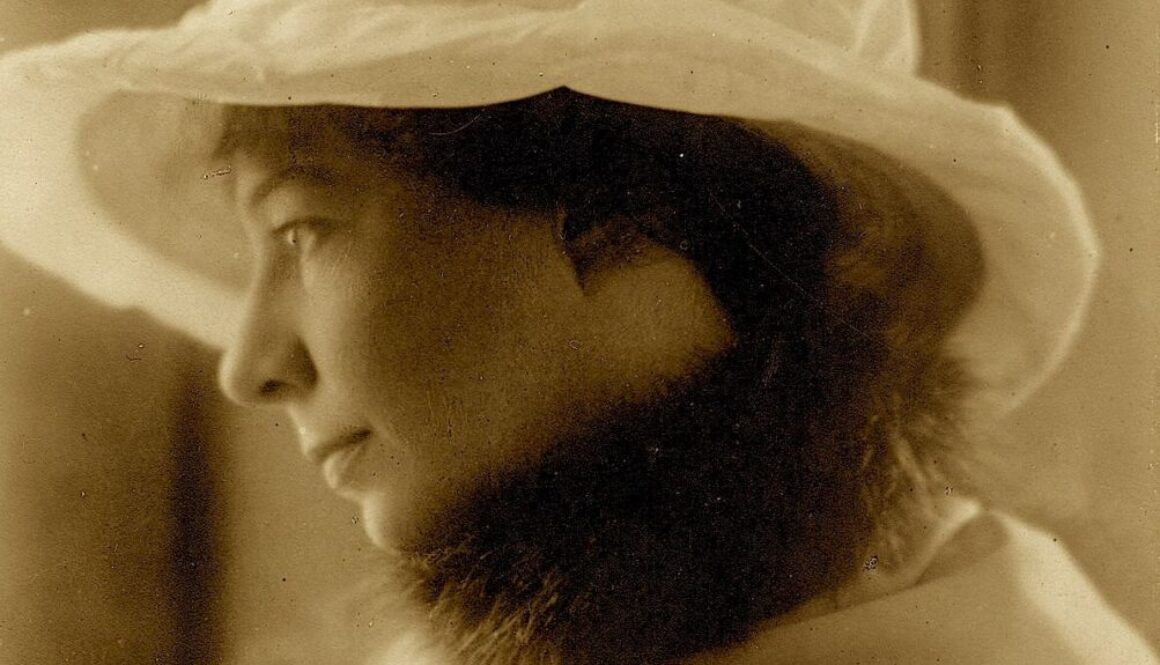Sara Teasdale – Poesie- Biblioteca DEA SABINA
Biblioteca DEA SABINA
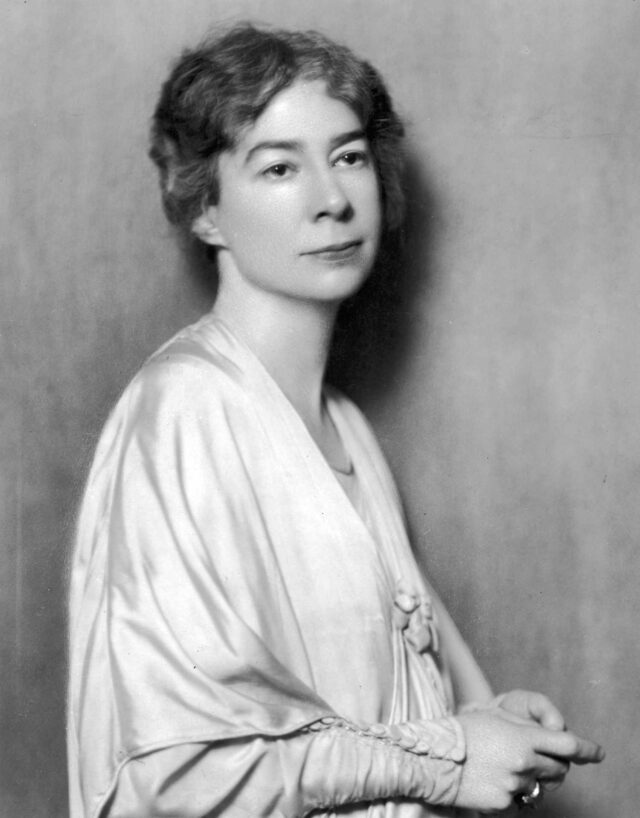
Poesie di Sara Teasdale – Poetessa statunitense.
La sua vita, caratterizzata dall’inquietudine e dalla nevrosi, finì con il suicidio a 38 anni.
Le sue poesie, dimenticate per anni, corrono sul filo dell’ironia e di una voluta semplicità.
NOTTE DI GIUGNO
*
Oh Terra, quanto sei cara stanotte,
Come posso dormire mentre intorno
Aleggia odore di pioggia e lontano
La voce dell’oceano parla alla spiaggia.
Terra, mi hai dato tutto quel che ho,
Ti amo, ti amo, oh che cosa ho
Io che possa darti in cambio — se non
Il mio corpo dopo che sarò morta?
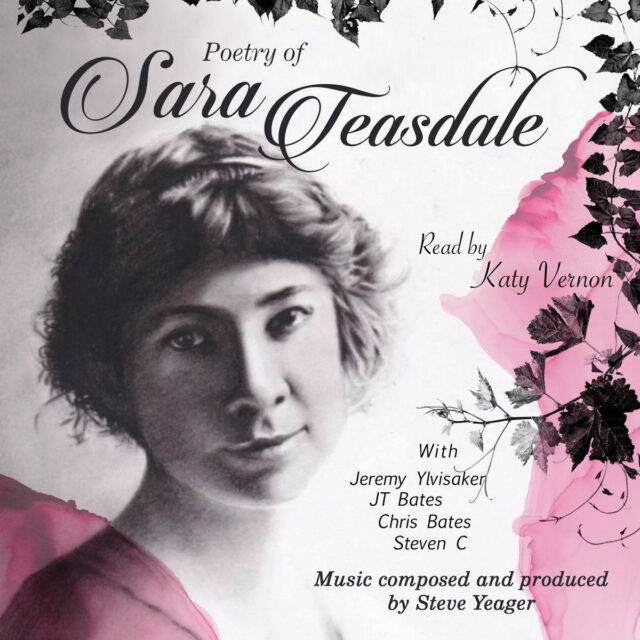
A Song To Eleonora Duse In “Francesca da Rimini “
Oh would I were the roses, that lie against her hands,
The heavy burning roses she touches as she stands!
Dear hands that hold the roses, where mine would love to be,
Oh leave, oh leave the roses, and hold the hands of me!
She draws the heart from out them, she draws away their breath,—
Oh would that I might perish and find so sweet a death!
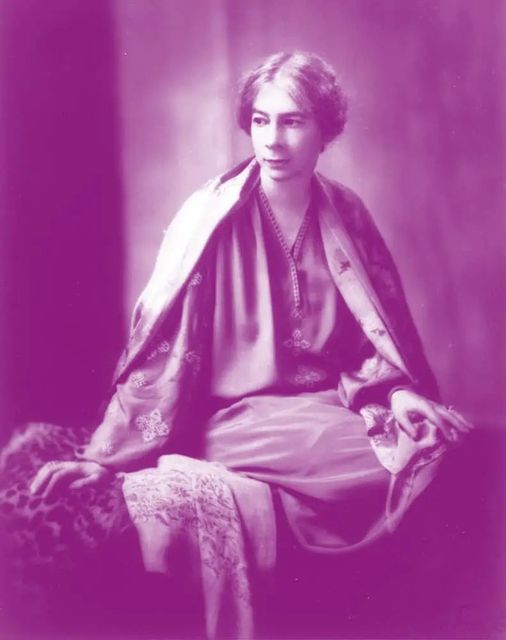
A November Night
There! See the line of lights,
A chain of stars down either side the street —
Why can’t you lift the chain and give it to me,
A necklace for my throat? I’d twist it round
And you could play with it. You smile at me
As though I were a little dreamy child
Behind whose eyes the fairies live. . . . And see,
The people on the street look up at us
All envious. We are a king and queen,
Our royal carriage is a motor bus,
We watch our subjects with a haughty joy. . . .
How still you are! Have you been hard at work
And are you tired to-night? It is so long
Since I have seen you — four whole days, I think.
My heart is crowded full of foolish thoughts
Like early flowers in an April meadow,
And I must give them to you, all of them,
Before they fade. The people I have met,
The play I saw, the trivial, shifting things
That loom too big or shrink too little, shadows
That hurry, gesturing along a wall,
Haunting or gay — and yet they all grow real
And take their proper size here in my heart
When you have seen them. . . . There’s the Plaza now,
A lake of light! To-night it almost seems
That all the lights are gathered in your eyes,
Drawn somehow toward you. See the open park
Lying below us with a million lamps
Scattered in wise disorder like the stars.
We look down on them as God must look down
On constellations floating under Him
Tangled in clouds. . . . Come, then, and let us walk
Since we have reached the park. It is our garden,
All black and blossomless this winter night,
But we bring April with us, you and I;
We set the whole world on the trail of spring.
I think that every path we ever took
Has marked our footprints in mysterious fire,
Delicate gold that only fairies see.
When they wake up at dawn in hollow tree-trunks
And come out on the drowsy park, they look
Along the empty paths and say, “Oh, here
They went, and here, and here, and here! Come, see,
Here is their bench, take hands and let us dance
About it in a windy ring and make
A circle round it only they can cross
When they come back again!” . . . Look at the lake —
Do you remember how we watched the swans
That night in late October while they slept?
Swans must have stately dreams, I think. But now
The lake bears only thin reflected lights
That shake a little. How I long to take
One from the cold black water — new-made gold
To give you in your hand! And see, and see,
There is a star, deep in the lake, a star!
Oh, dimmer than a pearl — if you stoop down
Your hand could almost reach it up to me. . . .
There was a new frail yellow moon to-night —
I wish you could have had it for a cup
With stars like dew to fill it to the brim. . . .
How cold it is! Even the lights are cold;
They have put shawls of fog around them, see!
What if the air should grow so dimly white
That we would lose our way along the paths
Made new by walls of moving mist receding
The more we follow. . . . What a silver night!
That was our bench the time you said to me
The long new poem — but how different now,
How eerie with the curtain of the fog
Making it strange to all the friendly trees!
There is no wind, and yet great curving scrolls
Carve themselves, ever changing, in the mist.
Walk on a little, let me stand here watching
To see you, too, grown strange to me and far. . . .
I used to wonder how the park would be
If one night we could have it all alone —
No lovers with close arm-encircled waists
To whisper and break in upon our dreams.
And now we have it! Every wish comes true!
We are alone now in a fleecy world;
Even the stars have gone. We two alone!
“I Know The Stars”
I KNOW the stars by their names,
Aldebaran, Altair,
And I know the path they take
Up heaven’s broad blue stair.
I know the secrets of men
By the look of their eyes,
Their gray thoughts, their strange thoughts
Have made me sad and wise.
But your eyes are dark to me
Though they seem to call and call—
I cannot tell if you love me
Or do not love me at all.
I know many things,
But the years come and go,
I shall die not knowing
The thing I long to know.
“If I Must Go”
IF I must go to heaven’s end
Climbing the ages like a stair,
Be near me and forever bend
With the same eyes above me there;
Time will fly past us like leaves flying,
We shall not heed, for we shall be
Beyond living, beyond dying,
Knowing and known unchangeably.
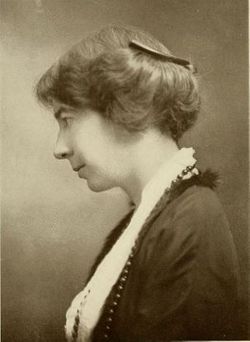
A Ballad Of The Two Knights
Two knights rode forth at early dawn
A-seeking maids to wed,
Said one, “My lady must be fair,
With gold hair on her head.”
Then spake the other knight-at-arms:
“I care not for her face,
But she I love must be a dove
For purity and grace.”
And each knight blew upon his horn
And went his separate way,
And each knight found a lady-love
Before the fall of day.
But she was brown who should have had
The shining yellow hair —
I ween the knights forgot their words
Or else they ceased to care.
For he who wanted purity
Brought home a wanton wild,
And when each saw the other knight
I ween that each knight smiled.
A Boy
OUT of the noise of tired people working,
Harried with thoughts of war and lists of dead,
His beauty met me like a fresh wind blowing,
Clean boyish beauty and high-held head.
Eyes that told secrets, lips that would not tell them,
Fearless and shy the young unwearied eyes—
Men die by millions now, because God blunders,
Yet to have made this boy he must be wise.
A Cry
Oh, there are eyes that he can see,
And hands to make his hands rejoice,
But to my lover I must be
Only a voice.
Oh, there are breasts to bear his head,
And lips whereon his lips can lie,
But I must be till I am dead
Only a cry.
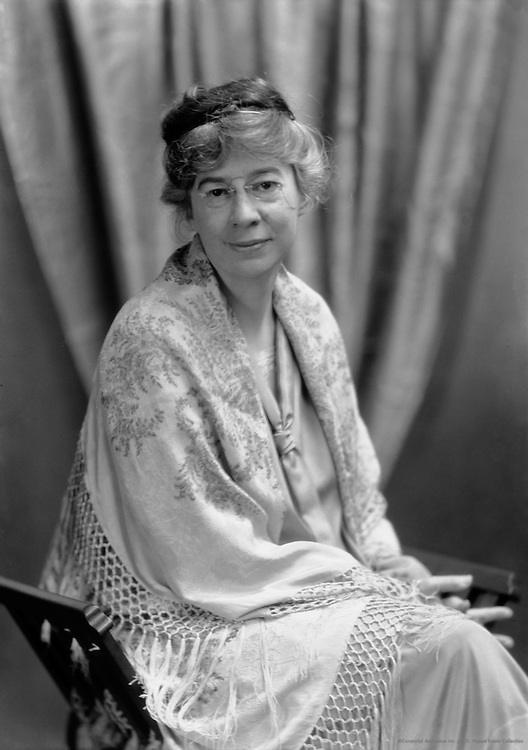
A Fantasy
Her voice is like clear water
That drips upon a stone
In forests far and silent
Where Quiet plays alone.
Her thoughts are like the lotus
Abloom by sacred streams
Beneath the temple arches
Where Quiet sits and dreams.
Her kisses are the roses
That glow while dusk is deep
In Persian garden closes
Where Quiet falls asleep.
A Little While
A little while when I am gone
My life will live in music after me,
As spun foam lifted and borne on
After the wave is lost in the full sea.
A while these nights and days will burn
In song with the bright frailty of foam,
Living in light before they turn
Back to the nothingness that is their home.
A Maiden
Oh if I were the velvet rose
Upon the red rose vine,
I’d climb to touch his window
And make his casement fine.
And if I were the little bird
That twitters on the tree,
All day I’d sing my love for him
Till he should harken me.
But since I am a maiden
I go with downcast eyes,
And he will never hear the songs
That he has turned to sighs.
And since I am a maiden
My love will never know
That I could kiss him with a mouth
More red than roses blow.
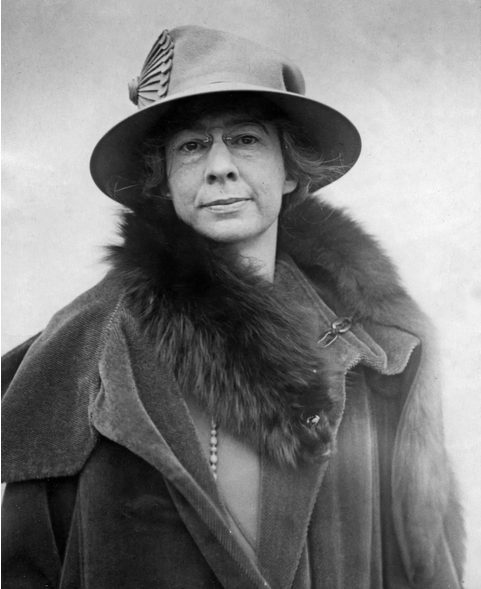
A Song Of The Princess
The princess has her lovers,
A score of knights has she,
And each can sing a madrigal,
And praise her gracefully.
But Love that is so bitter
Hath put within her heart
A longing for the scornful knight
Who silent stands apart.
And tho’ the others praise and plead,
She maketh no reply,
Yet for a single word from him,
I ween that she would die.
A Maiden
Oh if I were the velvet rose
Upon the red rose vine,
I’d climb to touch his window
And make his casement fine.
And if I were the little bird
That twitters on the tree,
All day I’d sing my love for him
Till he should harken me.
But since I am a maiden
I go with downcast eyes,
And he will never hear the songs
That he has turned to sighs.
And since I am a maiden
My love will never know
That I could kiss him with a mouth
More red than roses blow.
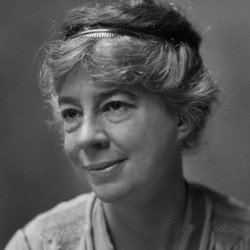
A Minuet Of Mozart’s
Across the dimly lighted room
The violin drew wefts of sound,
Airily they wove and wound
And glimmered gold against the gloom.
I watched the music turn to light,
But at the pausing of the bow,
The web was broken and the glow
Was drowned within the wave of night.
A Prayer
When I am dying, let me know
That I loved the blowing snow
Although it stung like whips;
That I loved all lovely things
And I tried to take their stings
With gay unembittered lips;
That I loved with all my strength,
To my soul’s full depth and length,
Careless if my heart must break,
That I sang as children sing
Fitting tunes to everything,
Loving life for its own sake.
A Winter Bluejay
Crisply the bright snow whispered,
Crunching beneath our feet;
Behind us as we walked along the parkway,
Our shadows danced,
Fantastic shapes in vivid blue.
Across the lake the skaters
Flew to and fro,
With sharp turns weaving
A frail invisible net.
In ecstasy the earth
Drank the silver sunlight;
In ecstasy the skaters
Drank the wine of speed;
In ecstasy we laughed
Drinking the wine of love.
Had not the music of our joy
Sounded its highest note?
But no,
For suddenly, with lifted eyes you said,
“Oh look!”
There, on the black bough of a snow flecked maple,
Fearless and gay as our love,
A bluejay cocked his crest!
Oh who can tell the range of joy
Or set the bounds of beauty?
A Winter Night
My window-pane is starred with frost,
The world is bitter cold to-night,
The moon is cruel, and the wind
Is like a two-edged sword to smite.
God pity all the homeless ones,
The beggars pacing to and fro.
God pity all the poor to-night
Who walk the lamp-lit streets of snow.
My room is like a bit of June,
Warm and close-curtained fold on fold,
But somewhere, like a homeless child,
My heart is crying in the cold.
Advice To A Girl
No one worth possessing
Can be quite possessed;
Lay that on your heart,
My young angry dear;
This truth, this hard and precious stone,
Lay it on your hot cheek,
Let it hide your tear.
Hold it like a crystal
When you are alone
And gaze in the depths of the icy stone.
Long, look long and you will be blessed:
No one worth possessing
Can be quite possessed.
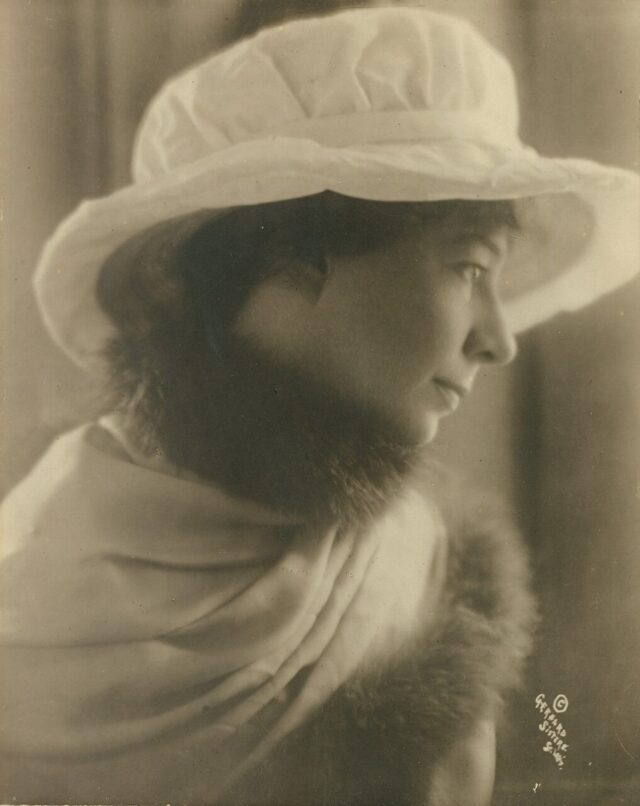
After Death
Now while my lips are living
Their words must stay unsaid,
And will my soul remember
To speak when I am dead?
Yet if my soul remembered
You would not heed it, dear,
For now you must not listen,
And then you could not hear.
After Parting
Oh I have sown my love so wide
That he will find it everywhere;
It will awake him in the night,
It will enfold him in the air.
I set my shadow in his sight
And I have winged it with desire,
That it may be a cloud by day
And in the night a shaft of fire.
Alchemy
I lift my heart as spring lifts up
A yellow daisy to the rain;
My heart will be a lovely cup
Altho’ it holds but pain.
For I shall learn from flower and leaf
That color every drop they hold,
To change the lifeless wine of grief
To living gold.
Alone
I am alone, in spite of love,
In spite of all I take and give—
In spite of all your tenderness,
Sometimes I am not glad to live.
I am alone, as though I stood
On the highest peak of the tired gray world,
About me only swirling snow,
Above me, endless space unfurled;
With earth hidden and heaven hidden,
And only my own spirit’s pride
To keep me from the peace of those
Who are not lonely, having died.
Anadyomene
The wide, bright temple of the world I found,
And entered from the dizzy infinite
That I might kneel and worship thee in it;
Leaving the singing stars their ceaseless round
Of silver music sound on orbed sound,
For measured spaces where the shrines are lit,
And men with wisdom or with little wit
Implore the gods that mercy may abound.
Ah, Aphrodite, was it not from thee
My summons came across the endless spaces?
Mother of Love, turn not thy face from me
Now that I seek for thee in human faces;
Answer my prayer or set my spirit free
Again to drift along the starry places.
April
The roofs are shining from the rain.
The sparrows tritter as they fly,
And with a windy April grace
The little clouds go by.
Yet the back-yards are bare and brown
With only one unchanging tree—
I could not be so sure of Spring
Save that it sings in me.
April Song
Willow in your April gown
Delicate and gleaming,
Do you mind in years gone by
All my dreaming?
Spring was like a call to me
That I could not answer,
I was chained to loneliness,
I, the dancer.
Willow, twinkling in the sun,
Still your leaves and hear me,
I can answer spring at last,
Love is near me!

Arcturus
ARCTURUS brings the spring back
As surely now as when
He rose on eastern islands
For Grecian girls and men;
The twilight is as clear a blue,
The star as shaken and as bright,
And the same thought he gave to them
He gives to me to-night.
At Midnight
Now at last I have come to see what life is,
Nothing is ever ended, everything only begun,
And the brave victories that seem so splendid
Are never really won.
Even love that I built my spirit’s house for,
Comes like a brooding and a baffled guest,
And music and men’s praise and even laughter
Are not so good as rest.
Day And Night
IN Warsaw in Poland
Half the world away,
The one I love best of all
Thought of me to-day;
I know, for I went
Winged as a bird,
In the wide flowing wind
His own voice I heard;
His arms were round me
In a ferny place,
I looked in the pool
And there was his face—
But now it is night
And the cold stars say:
“Warsaw in Poland
Is half the world away.”
The Inn Of Earth
I came to the crowded Inn of Earth,
And called for a cup of wine,
But the Host went by with averted eye
From a thirst as keen as mine.
Then I sat down with weariness
And asked a bit of bread,
But the Host went by with averted eye
And never a word he said.
While always from the outer night
The waiting souls came in
With stifled cries of sharp surprise
At all the light and din.
“Then give me a bed to sleep,” I said,
“For midnight comes apace”—
But the Host went by with averted eye
And I never saw his face.
“Since there is neither food nor rest,
I go where I fared before”—
But the Host went by with averted eye
And barred the outer door.

Biografia
Sara Teasdale nacque l’8 agosto 1884. Sua madre era Mary Elizabeth Willard e suo padre John Warren Teasdale. Era la figlia minore di una famiglia di due fratelli e una sorella.
Sara era di costituzione fragile e fu spesso ammalata. Visse pertanto protetta in seno alla sua famiglia fino all’età di nove anni sviluppando un mondo immaginario all’interno del suo universo solitario. A 10 anni i suoi genitori infine decisero di permetterle di uscire e di entrare in contatto con l’esterno. Solo all’età di 14 anni stette abbastanza bene per iniziare la scuola ma non ottenne alcun diploma.
La prima poesia della Teasdale fu pubblicata sul Reedy’s Mirror, un giornale locale, nel 1907. La sua prima raccolta di poesie, “Sonetti e altre poesie”, fu pubblicata quello stesso anno. La seconda raccolta di poesie, “Elena di Troia e altre poesie”, fu pubblicata nel 1911. Furono bene accolte dalla critica, che ne elogiò la maestria lirica e il soggetto romantico.
Negli anni 1911-1914, la Teasdale fu corteggiata da alcuni uomini, tra cui il poeta Vachel Lindsay, che era molto innamorato di lei. Tuttavia, non avendo la sensazione che egli le avrebbe potuto garantire una sufficiente tranquillità economica e stabilità familiare, la Teasdale preferì invece sposare Ernst Filsinger, che era stato un ammiratore della sua poesia per un certo numero di anni, il 19 dicembre 1914.
La terza raccolta di poesie della Teasdale, “Fiumi verso il mare”, fu pubblicata nel 1915 e fu un best seller, ristampato più volte. Un anno dopo, nel 1916 si trasferì a New York con suo marito, dove risiedettero in un appartamento dell’Upper West Side di Central Park West.
Nel 1918, la sua raccolta di poesie “Love Songs” (uscita nel 1917) vinse tre premi: il premio di Poesia della il Premio Pulitzer 1918 per la poesia e il premio annuale della Società di Poesia d’America.
Ernst Filsinger era spesso via di casa a lungo per affari la qual cosa causò molta solitudine per la Teasdale. Nel 1929, la Teasdale si trasferì in Missouri per tre mesi in modo da soddisfare i criteri per ottenere il divorzio. Di questo non volle informare Filsinger e lo fece solo su insistenza dei suoi avvocati. La cosa scioccò e sorprese Filsinger.
Dopo il divorzio, la Teasdale ritornò a New York City, andando ad abitare a soli due isolati di distanza dalla sua vecchia casa in Central Park West. Tuttavia ne approfittò per riprendere la sua amicizia con Vachel Lindsay, che era ormai sposato con figli.
Nel 1933, si suicidò con un’overdose di sonniferi. Il suo amico Vachel Lindsay si era suicidato due anni prima. È sepolta nel cimitero di Bellefontaine a St. Louis.
Influenze
La poesia “Verranno le dolci piogge” della sua raccolta “Fiamma e Ombre” del 1920 ispirò una famosa storia breve con lo stesso nome di Ray Bradbury.
| (EN)
«There will come soft rains and the smell of the ground, |
(IT)
«Verranno le dolci piogge e l’odore di terra, |
I poemi di Teasdale “La Nuova Luna”, “Solo nel Sonno” e “Stelle”, divennero pièce corali di Ēriks Ešenvalds, compositore lettone, per Musica Baltica. “Stelle” è divenuto molto famoso per l’uso di bicchieri di cristallo per ottenere il suono calmante delle “stelle”.[1][2]
Nel 1994, fu accolta nella St. Louis Walk of Fame.
Nel 2010, le opere di Sara Teasdale sono state per la prima volta pubblicate in Italia, con la traduzione di Silvio Raffo.

